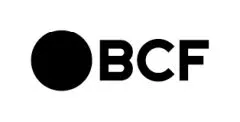Counterfeiters readily exploit the influence and popularity of social networks to promote their products, particularly through content creators. However, selling and advertising counterfeit products constitute trademark infringement, a violation of the Trademarks Act.
French influencer May Berthelot recently revealed that nearly half her community had encountered content from influencers promoting counterfeit products, and 20% of the influencers in her community had been solicited to endorse such products.
For companies whose products are counterfeited, the reputational risk is significant. These companies lack control over the quality of counterfeit items, which may even pose health and safety hazards to consumers. For instance, counterfeit luxury sunglasses may falsely claim to offer UV protection, potentially endangering their users. Many consumers unknowingly purchase counterfeit products. According to a recent poll by the European Intellectual Property Office, four out of ten consumers of counterfeit products were unsure of their authenticity. Unfortunately, similar data is not available for Canada.
Beyond the risk of receiving substandard products, consumers must also consider the consequences of financing illicit activities linked to organized crime and terrorism when purchasing counterfeit goods. Moreover, these products are often manufactured without regard for fair working conditions or the environment.
As online commerce continues to experience exponential growth, purchasing counterfeit products online and having them delivered to one's doorstep has become easier than ever. For that reason, France is currently updating its anti-counterfeiting framework to address, amongst others, the promotion of counterfeit products, particularly by influencers. Canada, however, has yet to make significant progress in this area.
For owners of trademarks registered in Canada, it is possible to enroll their trademark with the customs authorities. This allows the border services agency to temporarily detain goods that may have been counterfeited or pirated upon arrival at the border. In such cases, all details are provided to the owner to enable appropriate action.
Various other methods can be used to combat counterfeiting. For example, integrating anti-counterfeiting technologies into products makes it easier to identify authentic items. Additionally, providing the public with training materials on how to identify counterfeit products can prove beneficial.
Originally published Aug 28, 2023.
The content of this article is intended to provide a general guide to the subject matter. Specialist advice should be sought about your specific circumstances.
We operate a free-to-view policy, asking only that you register in order to read all of our content. Please login or register to view the rest of this article.



